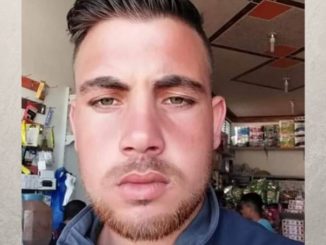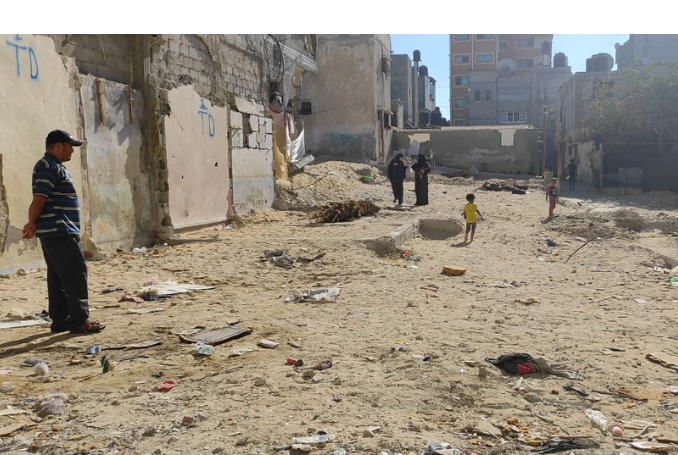
“I was at my father’s house when I heard the voices of bombardments. Immediately after, I received a call. They told me that Israel was bombing my neighborhood,” said Ashraf Al Qaisi, a 46-year-old vendor from Gaza.
Ashraf ran to his home. When he arrived, the whole neighborhood was devastated. Some people were injured and taken to ambulances; others were shouting and running. Every sight, smell, and sound at the scene was intense. It was exhausting to see all that and feel helpless.
Ashraf went right home to check on his family. His wife was injured. His son was already in the ambulance. He was assured his son was alive, so he checked again on his wife. She had been holding their youngest son when small bomb fragments struck her hand.
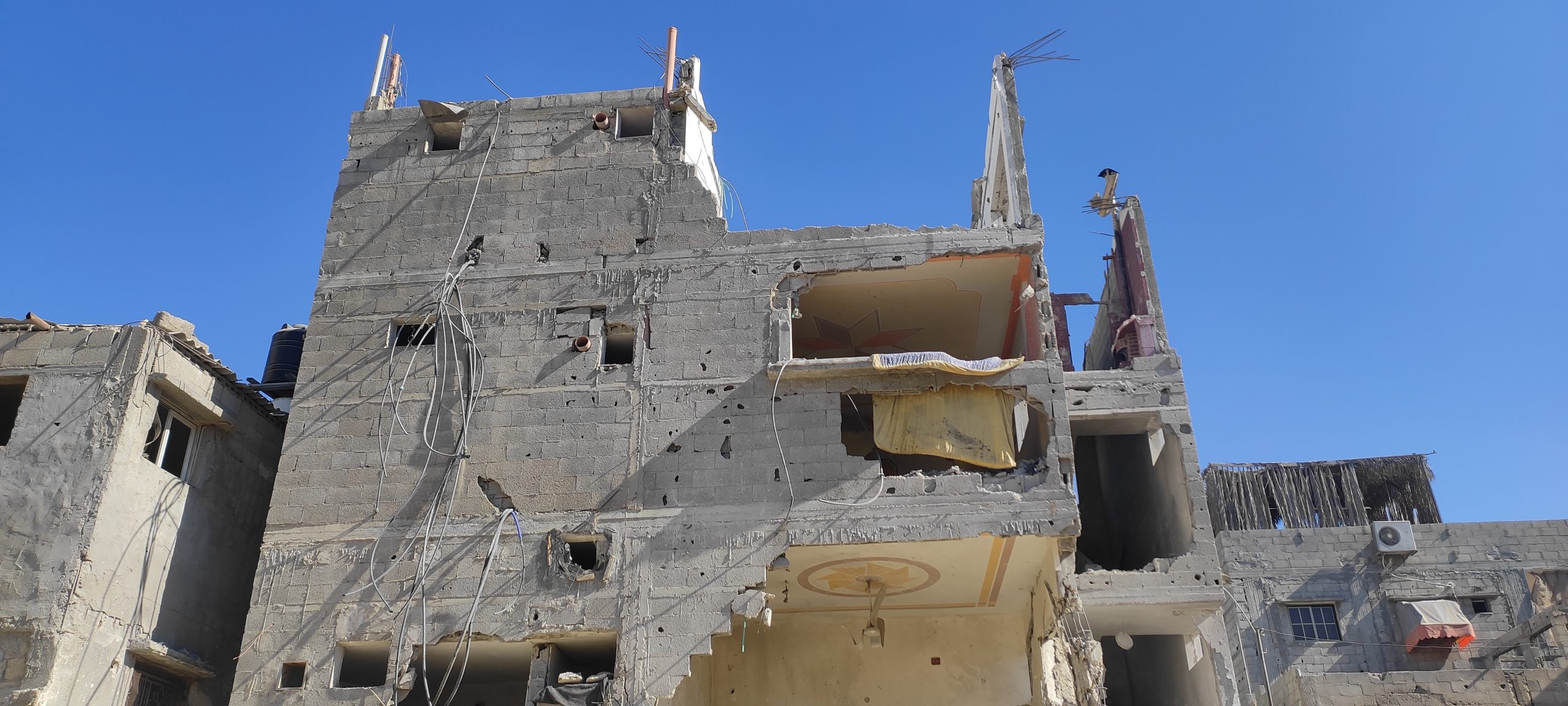
His wife’s injuries were much less severe than other people in the neighborhood, so he just sent her and the other children to one of our neighbors’ houses to leave more space in the ambulance for severe cases. As for Ashraf’s son, he was still at the hospital, as they are trying to get some fragments out of his hand.
Al-Shout Camp was bombed by Israel at 9:30 p.m on August 6, as part of aggression against the Gaza Strip. The raid killed eight people, including a 14-year-old child and three women, left 50 injuries, and flattened six houses, under which several bodies were trapped.
During the intense attack on Al Shout Camp in the southern area of the Gaza Strip, the civil defense had to ask to demolish the remainder of Ashraf’s house to be able to save people under the rubble. He didn’t think twice about it.
They had to ask for a bulldozer from Gaza, which took two hours to arrive. Four hours later, civil defense workers managed to pull out the first two bodies. After eight hours, they had pulled out a total of eleven.
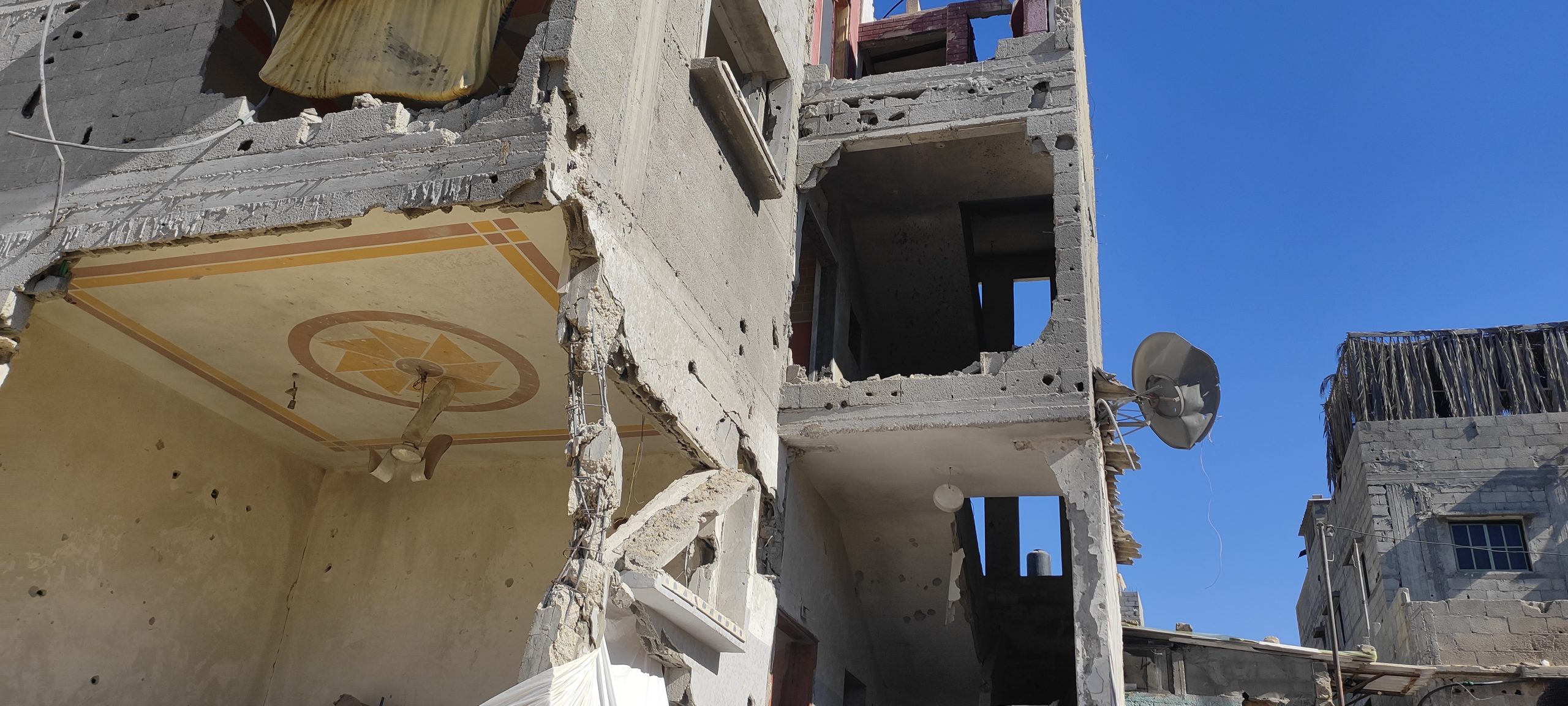
All that was left from the house were four damaged walls and one room. When the civil defense asked to use that to reach other people under the rubble, Ashraf couldn’t refuse. People all over the neighborhood were in desperate need of help.
Ashraf Al Qaisi’s neighbor, Omar Farhat, 60, an eyewitness of what happened that day, said that out of nowhere the rockets began falling on the buildings around him as he was lying on a carpet beside his home.
There was no warning. He put his hands over his head and ran inside his home, where his daughters and wife were sitting. About 15 people were inside. He helped them all get out.
Then Omar saw his neighbor, Iyad Hassouna, whose face was covered with blood. His neighbor was unable to run, so Omar lifted him over his shoulders and carried him to an ambulance. The neighbor was shouting, “Save my children!” Omar knew that they were already dead. He had seen Hassounas’ wife and daughter, entirely covered with blood. The sight was terrifying for him.
People were horrified. Dust was everywhere. They barely could see each other. Flesh was scattered among the rubble. Omar Farhat heard many others calling out, searching for their relatives and children. It was the worst thing he had ever heard.
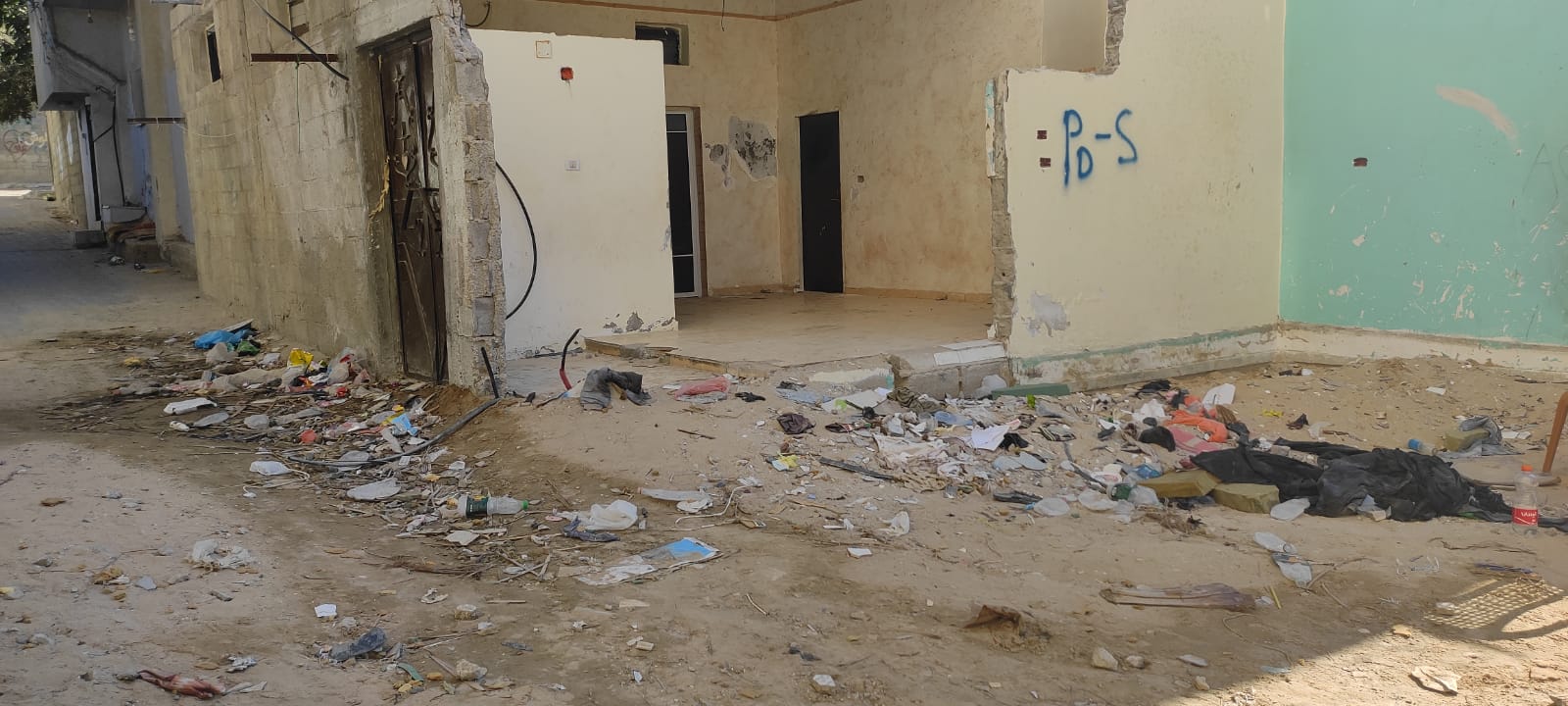
Omar’s son woke up yesterday, yelling, “There’s a rocket, dad, there’s a rocket!” He and all the others are deeply traumatized. Omar felt grateful to God that he was covered only with dust, not blood.
The spokesman for civil defense, Major Mahmmoud Bassal, said “Israel didn’t warn anyone in the neighborhood, so people were trapped under the rubble and it was too hard to get into the bombed houses, as all houses there are very close to each other.”
To enable the bulldozer to reach the rubble, four neighbors permitted the civil defense to demolish homes completely and partially. In one place.
The spokesman explained that civil defense in Gaza suffers from the lack of equipment due to the Israeli siege.
“The civil defense doesn’t have any of its own heavy equipment in Gaza. They borrow bulldozers from the ministry of public works. They have been using those vehicles since 1994, although they have to replace them every five years,” he said.
“We could’ve saved so many people, had we had more and better equipment,”.
Until now, Ashraf did not receive any compensation. Some organizations, neighbors and friends gave him some money, but not enough to cover his financial loss, build a new house, and live a decent life.
However, Ashraf never regretted his choice, because saving lives was much more important for him. “At times like that, all you could think of is helping other people survive,” he said, adding that he wishes God would compensate him for his sacrifice.
(All Photos: WANN, Supplied)

– Shahd Safi is a Gaza-based freelance translator and writer for We Are Not Numbers. WANN contributed this article to The Palestine Chronicle.

